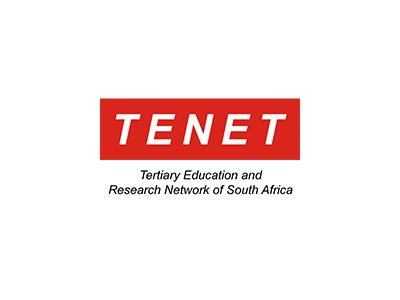
South Africa: coping during power outages
In many countries, constant power supply cannot be taken for granted. TENET, the national research and education network (NREN) of South Africa, has intensified its efforts to mitigate the consequences for its member institutions of so-called load-shedding, which is the South African term for scheduled, rolling electricity outages.
South African public universities and research institutions are interconnected and interdependent when it comes to network and internet connectivity. All are connected to the South African National Research Network (SANReN) as the connectivity needs are unique and cannot be met by commercial providers.
“Collegiality and shared ownership of the NREN has been a model that has served us well for the better part of the last two decades. We have relied on reciprocal arrangements with universities to host the necessary infrastructure, as opposed to using commercial data centers, as this lowers costs, reduces dependence on commercial operators, and builds a sense of ownership,” says Guy Halse, head of trust and identity at TENET, while noting that load-shedding has upset this balance in cases where institutions hosting infrastructure do not have as much power redundancy as those who depend on it.
One of the potential solutions is installing monitoring devices into the TENET/SANReN devices.
“This will allow direct communication with our team whether a device is down because of a power cut, or if there is another problem that an engineer needs to see to. This at least should be able to shorten our response time,” says Maria Mvungi, service support manager at TENET.
Sites may become isolated
The SANReN network comprises a national backbone and several metropolitan rings as well as extensive long-haul circuits to important research installations. This infrastructure connects all the partner institutions. Load-shedding has a major impact on this network, as, with it being interconnected and interdependent, when one site goes down it can impact the others.
“In order to understand the impact of load-shedding on the network it is important to understand how the network is set up. Often in metropolitan areas, the network will run in a ring around the region, connecting campuses of multiple institutions,” notes Mvungi.
She further explains that in a ring, if there is an issue such as a fiber break or power failure, traffic can flow in the other direction to ensure that other campuses are not affected. The trouble with load-shedding is that it happens all too often that there will be a break at one segment, and load-shedding at another site along the ring. This isolates sites between the two problem areas.
Shortened life span of devices
In a post-COVID world where online teaching is widely used, lack of connectivity is a major cause of frustration.
An additional challenge for Mvungi and her team is that it is not always possible to tell whether there is a fiber break that needs to be repaired, or the network has simply gone down due to load-shedding.
“Each time there’s a network outage, we have to try and reach out to institutions to get a sense of what is happening, but sometimes we cannot reach colleagues,” says Maria Mvungi, adding that load-shedding also impacts the life span of devices used in the network:
“These devices are not meant to turn and off all the time, this wears them out. So, with a shortened life of our devices, we also see more network outages than we otherwise would.”
The TENET network operations team has been looking into where it is possible to bypass potential problem sites, to build a fiber network that runs past sites that regularly have power backup problems, so those areas at least won’t affect the connectivity of the other sites on the ring. Where possible, TENET has been putting in place infrastructure to bypass sites.
Institutions help each other out
Further, TENET has tried putting batteries, uninterrupted power supply (UPS), down in certain key sites. But in periods of frequent load-shedding, the power goes down so often and for so long, the batteries drain and do not have time to charge again. There are also major problems with theft of batteries during the blackouts.
“TENET is investigating options of working more carefully to balance requirements of sites where infrastructure is hosted with their ability to keep the infrastructure running. Different expectations of the facilities will depend on if the site is only connected to one other site or if it connects two or more,” says Mvungi.
In the spirit of collegiality, it may also be possible for institutions to help each other. For example, when an institution that does have the skills and resources to keep running is dependent on another that doesn’t, it might make sense for them to lend their colleagues a helping hand.
“We need to find creative ways to minimize the impact of load-shedding on the research and institutions teaching and learning activities. TENET will continue to engage with our partners. Key to successfully weathering the load-shedding storm is to remember we are all in the same boat and we need to seek and find solutions for the collective good,” Mvungi concludes.
The text is inspired by the article “Load-shedding and the SANReN network” on the TENET website.
For more information please contact our contributor(s):

